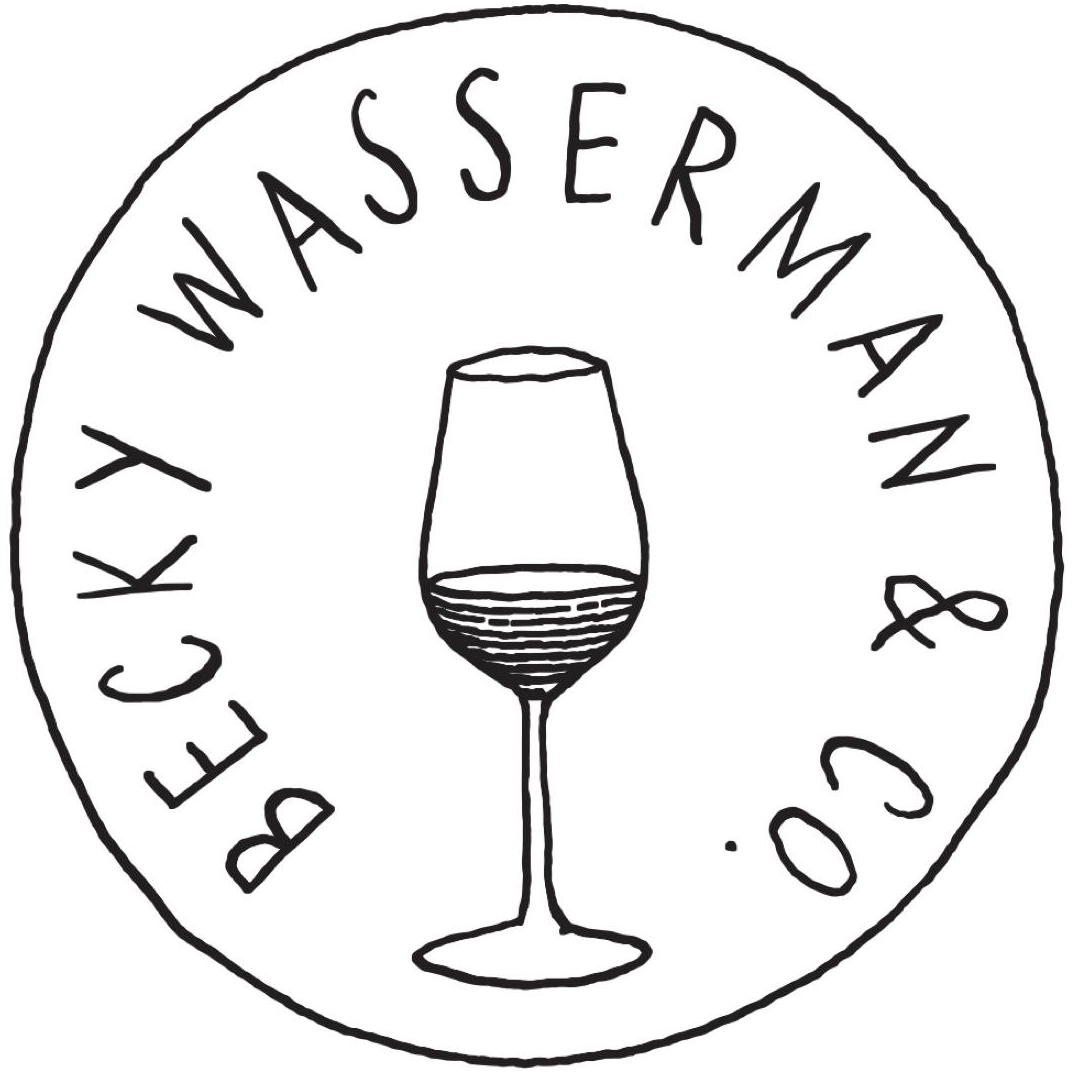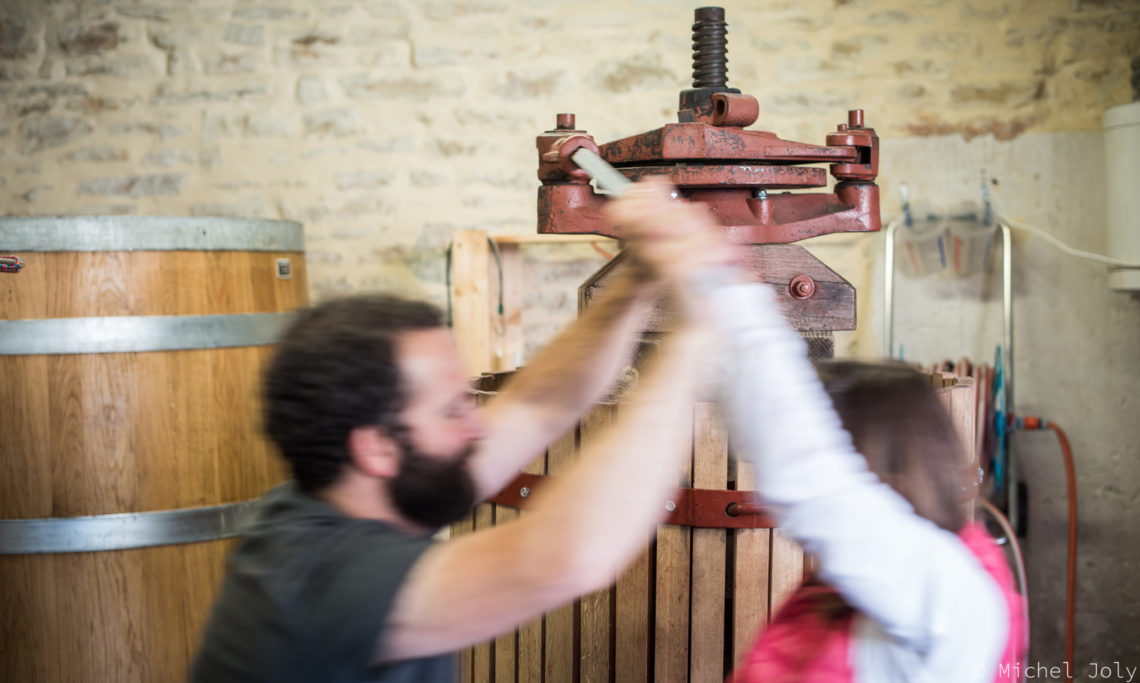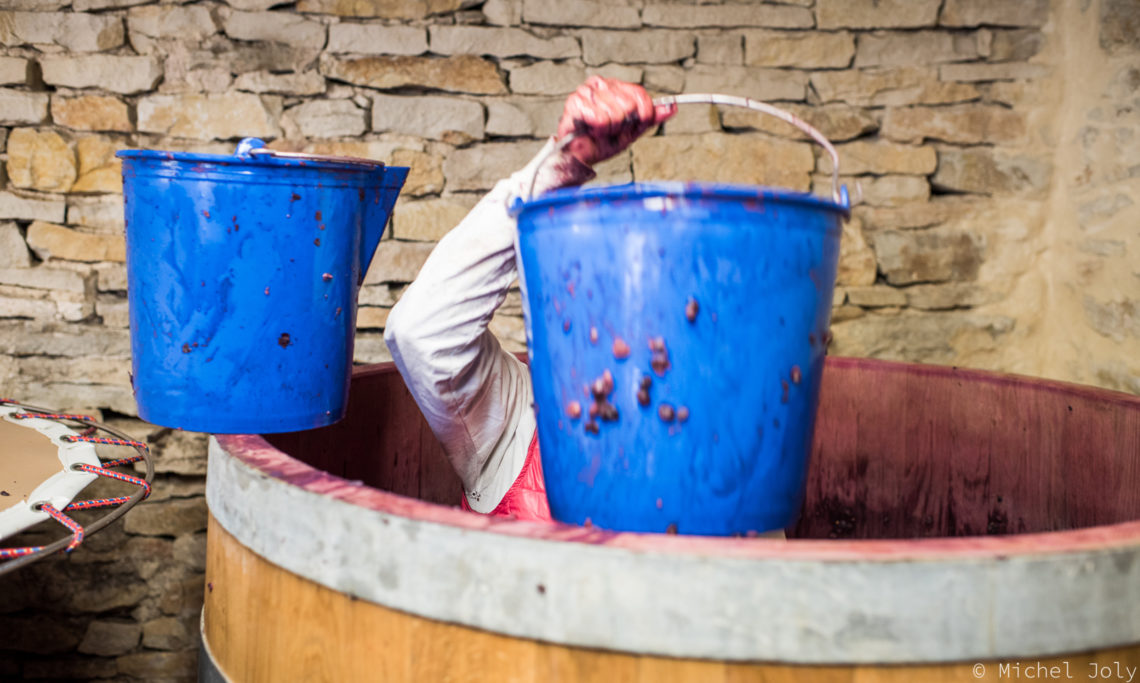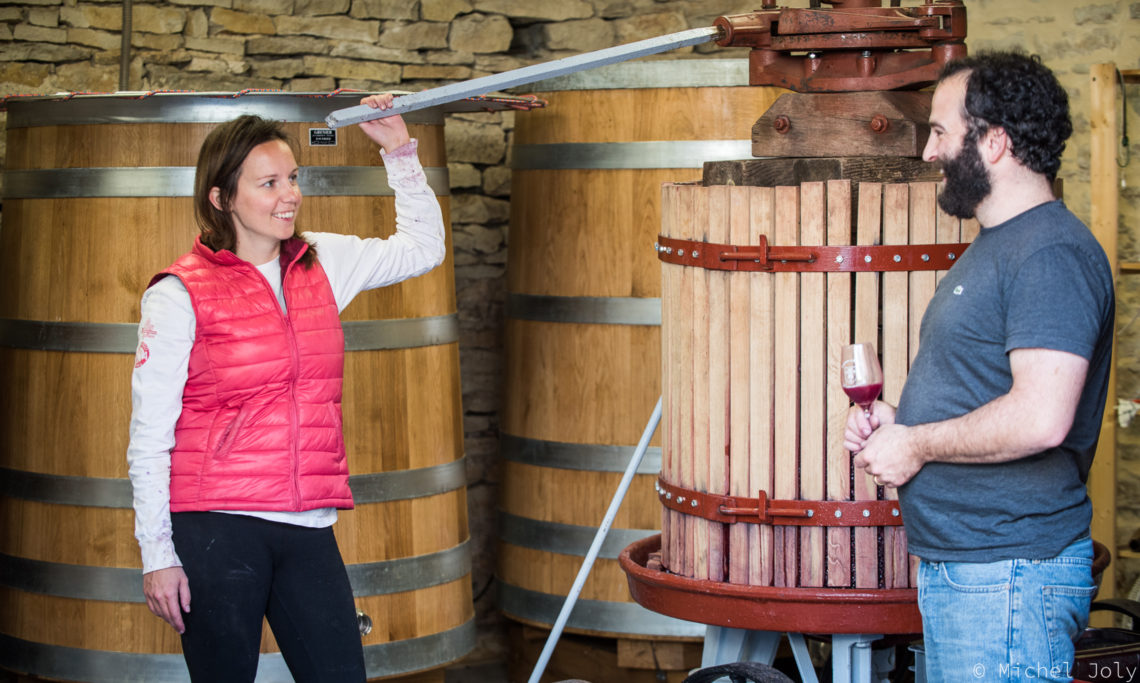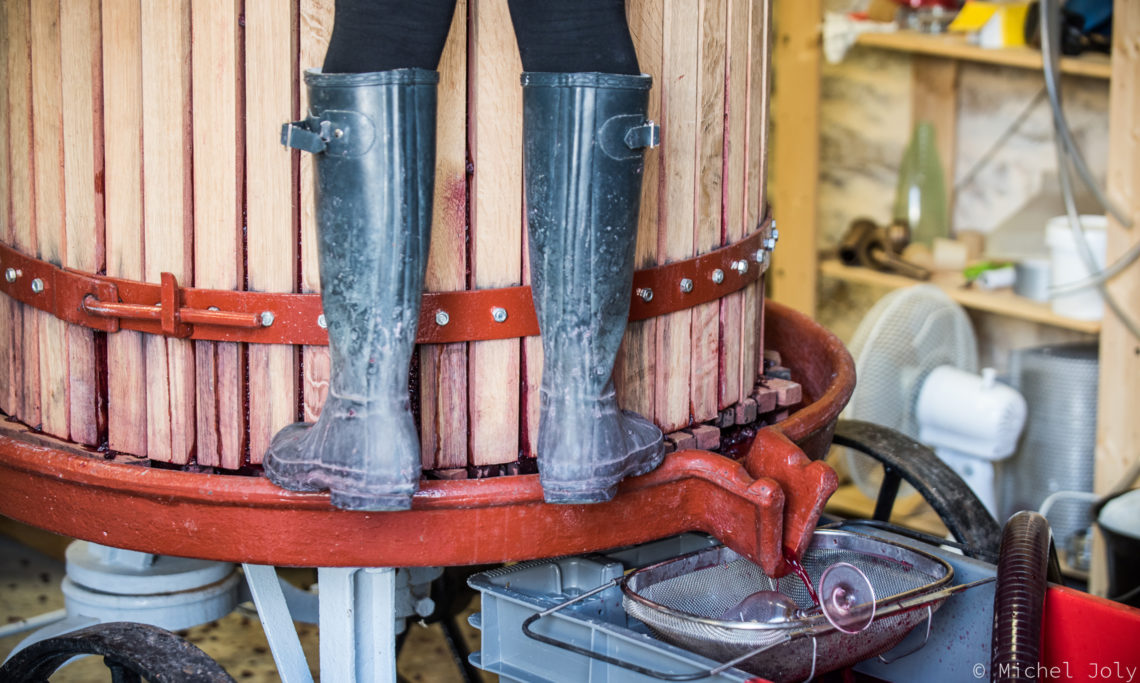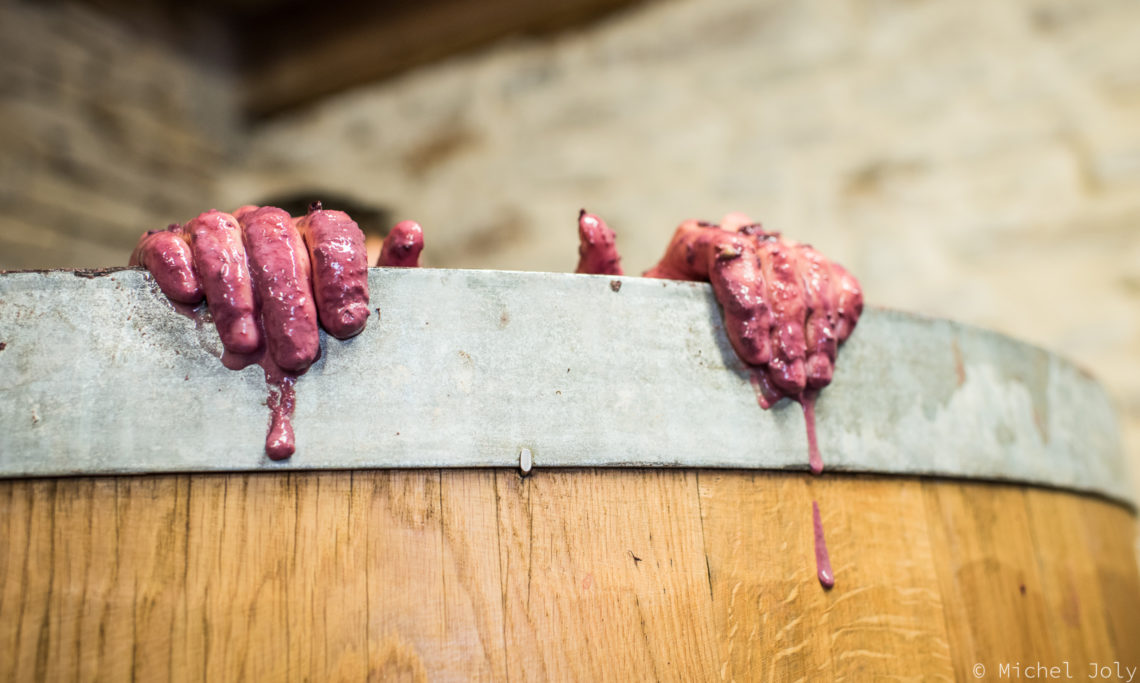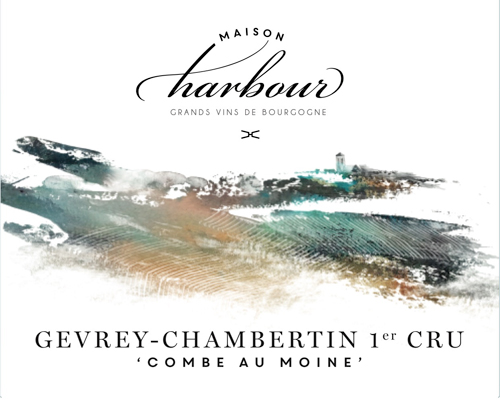Domaine Profile
- Location: Savigny-lès-Beaune, Burgundy
- Varieties: Pinot Noir, Chardonnay
- Viticulture: Sustainable with organic and biodynamic practices
- Vinification (whites): Crushed, pressed with whole clusters, settled for 10-18 hours, ambient yeast fermentation, aged for 12 months in 228L barrels (new only when it is necessary to replace a barrel), racked into tank to age for another 4-6 months, fined and filtered if needed, bottled with DIAM corks.
- Vinification (reds): 0-20% whole-cluster, ambient yeast fermentation in open-top oak tanks with a few foot or hand punch-downs (1- 2 maximum), pressed in small vertical press, settled for 1-2 weeks in tank, aged for 12 months in 228L barrels (new only when it is necessary to replace a barrel), racked into stainless tanks to age for another 4-6 months, no fining, rarely filtered; bottled with DIAM closures.
History
North American natives Colleen and Nick Harbour did not foresee a life of winemaking for their future, especially not in Burgundy. Born to on-the-go parents (Colleen’s father was a pilot, Nick’s, a pharmaceutical representative), the two first kindled their friendship in Luxembourg during their high school years. By the early 2000s, Colleen left Europe to pursue a psychology degree in Canada, and Nick returned to the United States to study finance. However, a love of Europe – and one another– brought them back to Luxembourg, though this time, as a couple.
The pair’s long-distance relationship comprised summers spent in Luxembourg, marked by weekend getaways to various European cities. Little did they know that a wine dinner in Prague would change the trajectory of their lives forever. “We went to a restaurant and had a wine pairing dinner that blew our minds,” says Colleen, recalling their shared ‘ah-ha’ moment, as well as the sommelier’s indelible connections between wine and its place of origin.
The couple eventually moved back to Luxembourg full time in 2008, indulging their love of wine in local wine clubs and wine pairing dinners while working their day-to-day jobs. Nearly a decade prior, Nick’s parents had purchased a weekend home in Savigny-les-Beaune, and Colleen and Nick found themselves visiting Burgundy more frequently. Exasperated by the mundanity of their career paths, the pair took the plunge and officially moved to Burgundy to immerse themselves in the wine industry in 2011.
After enrolling at the University in Beaune, Nick – who did not speak a word of French at the time – interned at Génot-Boulanger, received his oenology certificate, and hatched a plan to start a winery, though didn’t fully believe in realizing its potential. When the pair found an available property on Valentine’s Day in 2013, they jumped.
Though finding financial stability and starting a new business rarely go hand in hand. Colleen pursued an internship at Maison Champy, while Nick worked full-time at Domaine Jean Marc et Hugues Pavelot. Not missing a beat, the pair frantically searched to buy fruit in 2013, and through various friends and connections made at school, they actually were able to make it happen – falling upon fruit from Gevrey, Gevrey 1er Cru, Vosne-Romanée, and Chassagne ‘En Remilly,’ nonetheless.
“We had no idea what we were doing. Good thing we got the electricity turned on!” laughs Colleen, recalling the couple’s trial-and-error attitude towards their first vintage. “We really wanted to make sure that we showcased the fruit – it wasn’t so much about our technique, but more about the grapes,” she says. “We figured, well, we’re in Burgundy, and this region is renowned for its fruit, so if these terroirs are really so special, it should have very little to do with us and everything to do with fruit. We’ll build off of that.”
Nick recounts that although the couple didn’t have much support, there were plenty of curious neighbors who offered their (at times, unsolicited) advice. “Oftentimes, we just said thank you very much, gave them a few beers, and sent them on their way. We knew what we wanted to do, and it wasn’t the same recipe as most people in the village, but they were trying to be nice,” he says. “No one treated us like dumb Americans.” Nick describes the couple’s first vintage as “very lucky,” and having “fallen in the right place at the right time,” with regards to the fruit contracts they found.
Going on their ninth vintage, Nick now works at Maison Harbour full time, while Colleen holds an administration role at Becky Wasserman & Co, while also throwing herself into their eponymous passion project by his side. We sat down with Nick and Colleen to see where they’re at today, and to say they’ve come far is an understatement.
Interview
Vicki Denig: Today, how much wine / how many cuvées do you currently make at Maison Harbour?
Maison Harbour: We make about 12,000 bottles per year across 13 (approx.) different wines.
VJD: As négociants, where do you get your fruit from?
MH: Mostly from friends. We tried to work with brokers in the past, but brokers have clients who have been here for generations, so as new guys, working with them can be really difficult. For us, it’s about building relationships with people.
VJD: How would you describe your winemaking style?
MH: We want to be true to Burgundy and true to the terroir. For us, that means having a light touch, emphasizing finesse (being gentle, native yeast fermentations, little to no punchdowns, etc.), and doing things with intent.
VJD: Which winemakers have influenced your winemaking style?
Nick Harbour: I love Olivier Lamy. I think his wines are great. He’s interesting, and he’s not scared to do things with intent and purpose, and to make decisions based on what he knows. He’s more scientific about it [in a good way].
VJD: What are some lessons you’ve learned along the way?
MH: There’s really only been one wine that we made that we didn't love (it was a bit volatile), and the good thing about being a négociant is that we can sell those wines off in bulk. It allows us some flexibility.
VJD: What are the pros and cons of working as négociants?
MH: The cons are not being able to have your own fruit, though to have our own fruit would simply be another learning curve. We’ve done it thus far, this would just be another one. Another pro is that we have such a network of peers here (from Australia, Canada, and France), who are also operating small winemaking structures similar to ours. We struggle together! (laughs) Understanding and knowing the terroir is also a big challenge as a négociant. You start to learn your terroir, and then all of a sudden you don’t have access to it anymore.
VJD: What is it like working together as a couple?
Colleen Harbour: It’s been an interesting ride, and even kind of complicated, as I was fully involved with everything from the beginning, then we had two kids within four years, and that took me out of a lot of it [being pregnant, breastfeeding, simply caring for them]. Our family’s not here, so I couldn’t be as involved as I wanted to be on the winemaking side.
Nick Harbour: The nice thing about working as a couple (specifically us) is that we are so different and have very different strengths and weaknesses.
Colleen Harbour: Nick will spend 15 hours trying to find one tiny detail…
Nick Harbour: It’s really important! But Colleen is much more pragmatic. The balance of me getting so far into detail and her getting things moving is key.
VJD: Do you fall more on the low-intervention or natural side of things?
MH: We’ve learned a lot from our colleagues on what to do and what not to do. We’ve gotten lucky! We kind of fell into the natural wine crowd, but we fight it. It’s not that we don’t agree with it, we’re just not extremists.
VJD: What are some of your goals for the next year? Next five years?
MH: Our immediate goal is to scale up production, which is hard, because it means finding more contracts and spending more money. There is a lot of competition to buy fruit in Burgundy. Prices are high, and there isn’t a lot of fruit for sale that’s great quality. We want to grow the business, but we need grapes.
VJD: What’s next for Maison Harbour?
MH: We’d like to grow the business, and right now, it’s probably better to focus on buying vineyards as opposed to buying fruit.
VJD: Do you think you’ll stay in Burgundy?
MH: I think we’ll stay, but we’ve definitely considered moving to New Zealand or Oregon, as it’s more affordable. We’ll never say never, but we love the Pinot and Chardonnay from Burgundy. We love Oregon wines, but they’re just not the same. They're great, we’re just really not excited about making them. We also love the community and lifestyle that we have here.
VJD: Which regions / producers / bottles are you currently excited about at the moment?
MH: Chris Santini and other small guys around here. Chanterêves is amazing. Catharina at Les Horées is making great wines. Piedmont, other Italian regions – the problem is that you can’t get much here. We try and trade bottles amongst all of us, but if we all just trade bottles, there will be nothing to sell! We do always find it fascinating to taste Pinot Noir and Chardonnay from New Zealand. There’s some cool stuff, just not enough of it here. Our theme has always been to chase Pinot and Chardonnay from other regions.
VJD: Any concluding thoughts?
MH: I think there’s a lot you have to think about [as a new négociant in Burgundy]. You have to become comfortable. We’re going on ten years of being here. We’re starting to take more risks than at the beginning. Now, we feel more in control. We understand the terroir (don’t put oak on this particular wine, this one is always reductive, etc.) We just know now, and that’s a big part of doing it all.
